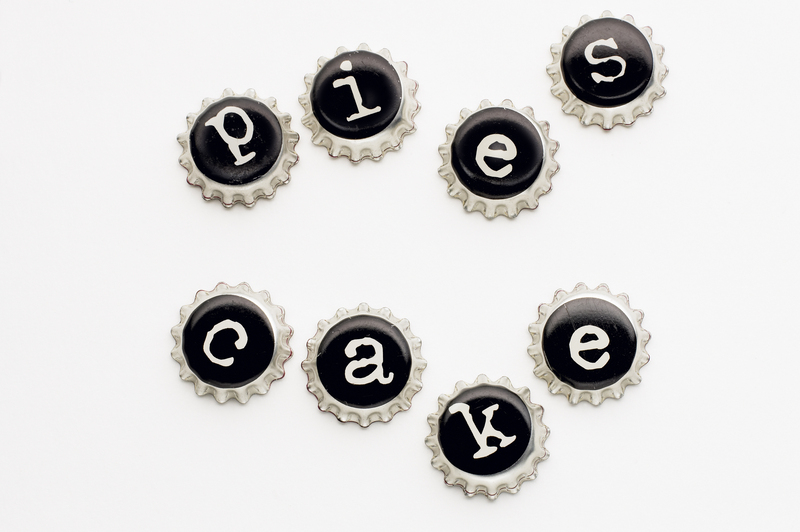Harnessing Student Energy for School Recycling: Building Eco-Friendly Campuses
Recycling is more than just a process; it's a powerful movement that transforms the culture of any campus. Schools are the heartbeats of communities, and by harnessing student energy for school recycling programs, we can create waves of positive change that go far beyond the classroom walls. Whether the goal is to reduce landfill waste, foster environmental consciousness, or create sustainable habits, leveraging students' passion and creativity is essential for any successful recycling initiative. This comprehensive guide explains how to motivate students, design effective recycling strategies, and build a lasting green legacy within your educational institution.

Why Student Involvement is Vital in School Recycling Programs
Schools are environments where habits are formed and values take root. Engaging students in school recycling initiatives not only educates them about sustainability but also empowers them to be proactive agents of change. Here's why tapping into student energy is a game-changer:
- Peer Influence: Students inspire each other more effectively than adults alone ever could.
- Skill Development: Involvement in recycling activities builds leadership, teamwork, and organizational skills.
- Community Impact: Students are natural ambassadors, spreading green practices to families and communities.
- Long-Term Commitment: Early exposure to eco-conscious behaviors leads to lifelong sustainable habits.
Major Benefits of Student-Led School Recycling
- Boosts School Spirit: Collaborative green projects unite students with a shared purpose.
- Educational Value: Integrates hands-on STEM, social studies, and art learning experiences.
- Eco-Friendly Culture: Demonstrates real-world responsibility and encourages environmental stewardship.
- Positive Public Relations: Highlights the school as a leader in sustainability and civic engagement.
Strategies to Empower Students in School Recycling Efforts
Effective recycling programs thrive on active student participation. Here are proven strategies to tap into students' energy and channel it into impactful recycling action across all grade levels:
1. Launch a Student Recycling Committee
Form an enthusiastic student-led recycling team responsible for organizing, promoting, and tracking recycling initiatives. Encourage representation from each class or grade to ensure broad participation and ownership. Equip the group with roles, such as:
- Program Coordinator
- Communications Leader
- Bin Monitors
- Data Analyst (to track results and share progress)
- Event Planner (for campaigns and educational events)
2. Provide Leadership and Training Opportunities
Empower students by teaching them about waste management, recycling best practices, and environmental science. Invite local experts, organize workshops, and encourage older students to mentor younger ones. This layered approach of peer-to-peer education has proven lasting effects on knowledge retention and enthusiasm.
3. Design Creative Challenges and Competitions
Healthy competition fuels excitement. Organize inter-class or intergrade recycling contests--Who can collect or properly sort the most recyclables in a month? Offer eco-friendly rewards such as reusable water bottles, additional recess time, or a green trophy for the victorious group. Keep a visible progress chart to build momentum and accountability.
4. Integrate Recycling Into Classroom Curriculum
Make sustainability a living subject. Incorporate recycling facts into science lessons, have students calculate waste reduction statistics in math, and create recycling art projects in class. These hands-on activities awaken curiosity and drive home the real-world impact of thoughtful waste management.
5. Celebrate Success Stories & Student Contributions
Recognition is a powerful motivator. Celebrate milestones, individual efforts, and collective achievements with assemblies, school newsletters, or eco-award ceremonies. Highlighting student contributions inspires others to join and creates a positive cycle of encouragement and pride.
6. Connect with Community Resources
Partner with local recycling centers, municipal waste services, and environmental organizations. Arrange field trips or guest speaker visits. Community partnerships provide practical insight and strengthen the real-world purpose of school recycling projects.
Best Practices: Effective School Recycling Systems
Building a successful recycling program demands more than enthusiasm--it requires practical structure and ongoing support. Here are actionable steps every school can use to boost participation and maximize the energy students bring to recycling efforts:
1. Place Clearly Labeled Bins Throughout Campus
- Provide color-coded recycling bins in hallways, classrooms, cafeterias, and outdoor areas.
- Use clear labels and visual aids (pictures of recyclables vs. trash) to avoid confusion.
- Assign students to regularly monitor and empty bins, turning this into a rotating responsibility.
2. Launch a Schoolwide Recycling Awareness Campaign
- Create posters, assemblies, and digital content starring students.
- Host Green Days where everyone is encouraged to bring reusable items and zero-waste lunches.
- Feature green tips and recycling facts on the school's website and social media.
3. Set Achievable Goals and Track Results
- Begin with a waste audit to understand current habits.
- Work with students to set attainable benchmarks.
- Share progress schoolwide--monthly recycling totals, reduced landfill waste, or participation rates.
4. Encourage Cross-Grade Collaboration
- Pair younger students with older "Recycling Buddies" for joint projects.
- Host multi-grade assemblies and brainstorming sessions.
- Promote inclusivity by inviting all students--regardless of age or background--to participate.
Creative Ideas to Spark Passions for Recycling Among Students
Successful student-driven recycling programs are energized by innovative events and ongoing engagement. Here are creative ideas to keep students excited and involved:
- Recycled Art Shows: Host a competition or exhibition where students craft sculptures, costumes, or decorations from repurposed materials.
- Eco-Fairs: Organize a fair featuring green businesses, interactive recycling demos, and sustainability-themed games.
- Waste-Free Lunch Days: Encourage students to bring waste-free, reusable containers. Recognize and reward classes with the least waste generated.
- Green Tech Projects: Challenge students to design innovative recycling bins or apps to track recycling participation and data.
- Classroom Composting: Expand beyond recycling bottles and cans--get students involved in composting food scraps and using compost in school gardens.
- Upcycling Workshops: Teach students how to turn everyday "trash" into useful or decorative items, like bird feeders or pencil holders.
Overcoming Common Challenges in School Recycling Programs
Even the most passionate student body can encounter hurdles when implementing school recycling initiatives. Here are practical solutions to several common obstacles:
Confusion Over What Can Be Recycled
Solution: Tailor recycling education and bins to local recycling guidelines. Use simple signage and teach students to "When in doubt, throw it out"--recycling streams can be contaminated by non-recyclables.
Inconsistent Participation
Solution: Rotate student leaders, refresh campaigns regularly, and keep participation fun and rewarding. Make recycling visible and part of daily school routines.
Lack of Resources or Funding
Solution: Seek grants from environmental groups, hold student-led fundraisers, or ask local businesses for bin or supply sponsorships.
Maintenance and Follow-Through
Solution: Work with custodians and staff to ensure collected recyclables are managed properly. Assign "Recycling Monitors" to oversee bins and address issues promptly.
Community Buy-In
Solution: Involve parents through newsletters, home challenges, and family green pledges. Share success stories and results at PTA meetings to build pride and support.
Measuring the Impact: How Student-Led Programs Transform School Sustainability
Tracking the results of recycling initiatives is vital for continued improvement and motivation. Empower students as scientists and data analysts--have them conduct:
- Monthly waste audits to measure reductions in trash output
- Charts and graphs to visualize recycling progress
- Reports to share findings with the wider school community
- Surveys to gauge attitudes and suggest improvements
Visible feedback loops keep the entire school invested in the program's success and encourage healthy competition between classes, grades, or teams.
Case Studies: Student Energy Powering School Recycling Success
Elementary School Spotlight: The "Green Guardians" Project
At Oak Grove Elementary, the formation of a "Green Guardians" club led by third graders resulted in a fourfold increase in paper and plastic recycling in just one semester. By involving every class in weekly recycling races and celebrating monthly "Waste Warriors," students and staff developed a contagious enthusiasm for recycling.
Middle School Success: Peer-Led Waste Audits
At Pine Valley Middle School, students conducted regular waste audits and presented findings in assemblies. Their advocacy pushed the school to invest in better bins and composting facilities, leading to a 60% reduction in cafeteria waste over two years.
High School Innovation: Tech-Driven Recycling Challenges
At Edison High, students built a digital tracker to monitor recycling rates by classroom. The platform fueled inter-class challenges, earned local press, and inspired other district schools to adopt similar technology.

The Lasting Legacy: Students as Champions of School Recycling
By actively harnessing student energy for school recycling, schools are not only managing waste effectively but also nurturing a generation of informed, passionate environmental stewards. *When students see their ideas valued and their leadership rewarded, they grow into lifelong champions for sustainability--rippling these habits into homes and communities across the globe.*
Takeaway Tips for Launching a Student-Led Recycling Revolution
- Start small, but dream big. Every can or carton saved counts, and momentum builds over time.
- Let students lead. Their creativity, competitive spirit, and camaraderie are unmatched motivators.
- Reinforce lessons with real impact. Connect recycling to community, curriculum, and personal responsibility.
- Remember to celebrate! Recognize all contributions to sustain enthusiasm and inspire the next generation of green leaders.
Conclusion: The Future of School Recycling Lies in Student Hands
Harnessing student energy for school recycling is more than a green goal--it's the key to building eco-smart campuses and resilient communities. Through hands-on projects, peer-driven outreach, and creative competitions, schools can turn recycling into a culture-shaping, future-proof movement. By uniting students, staff, and the wider community around sustainability, every school can foster a legacy that protects the planet for generations to come.
Ready to start your own student recycling revolution? The time to harness student energy is now--let's build a cleaner, greener future together!